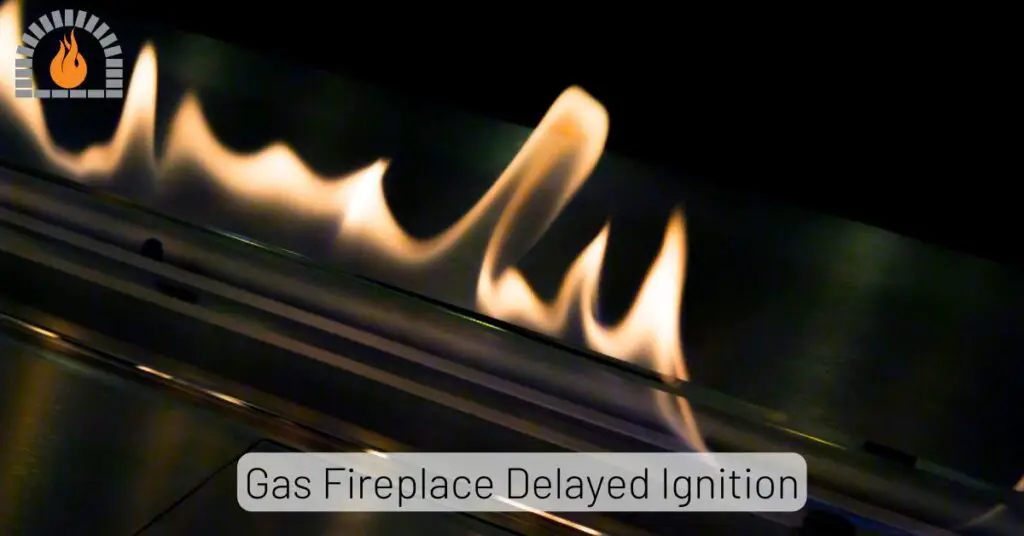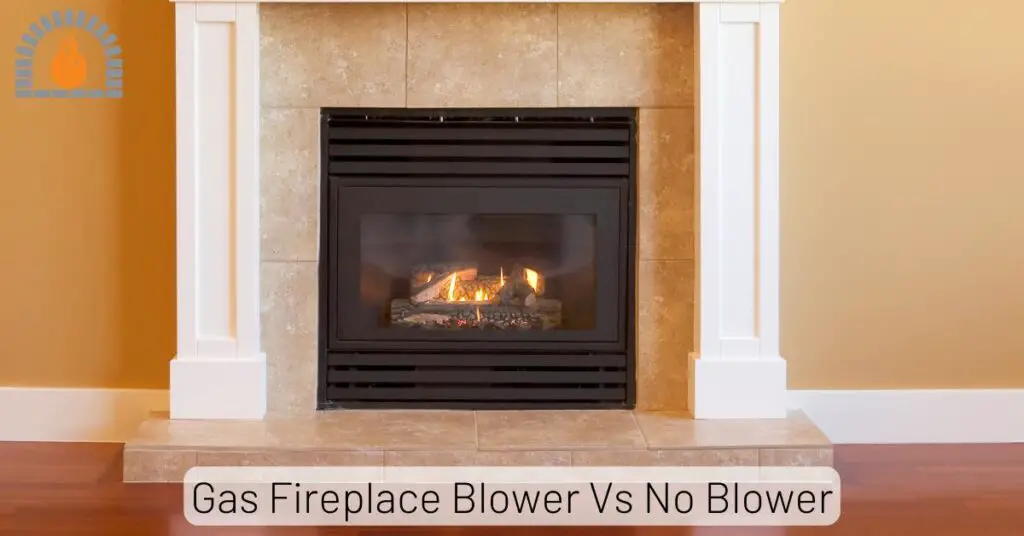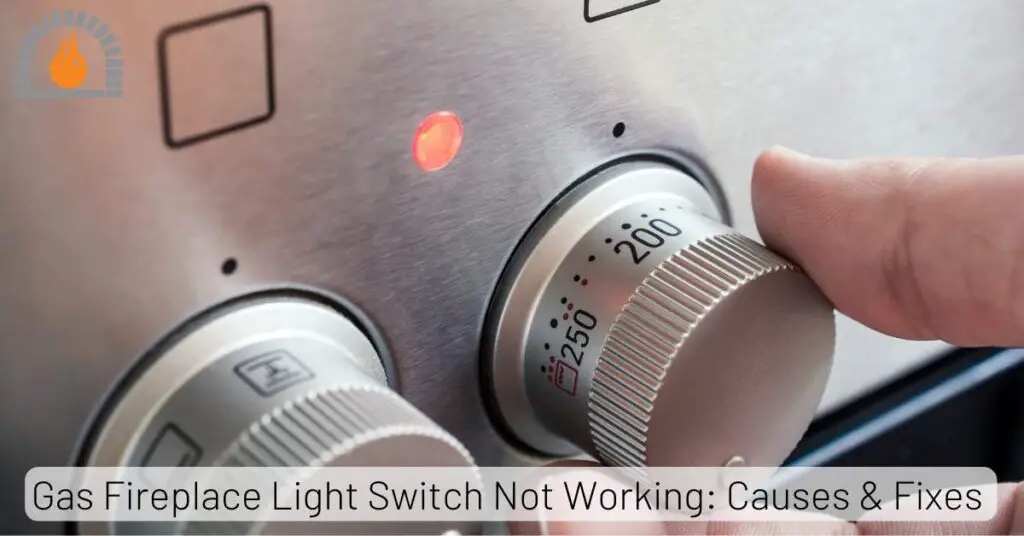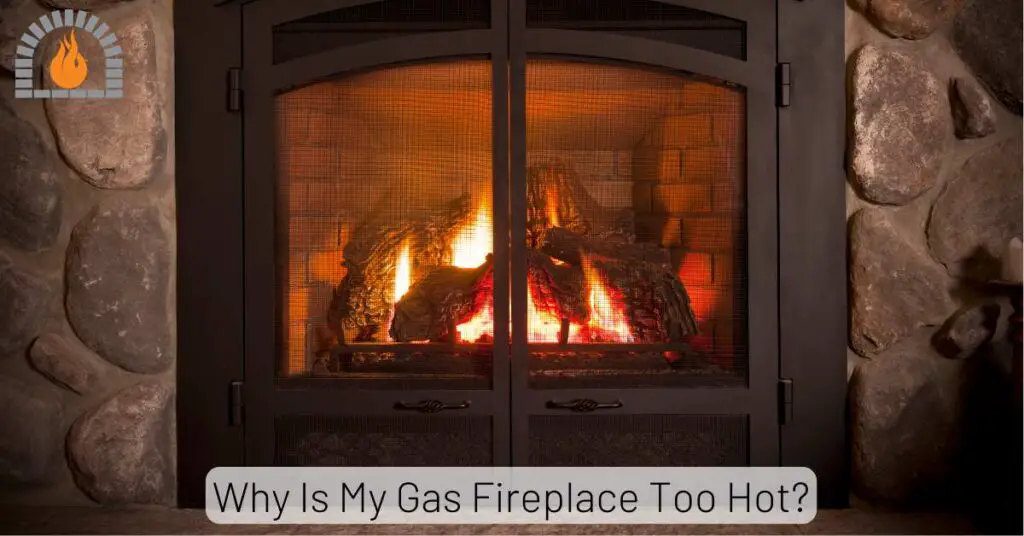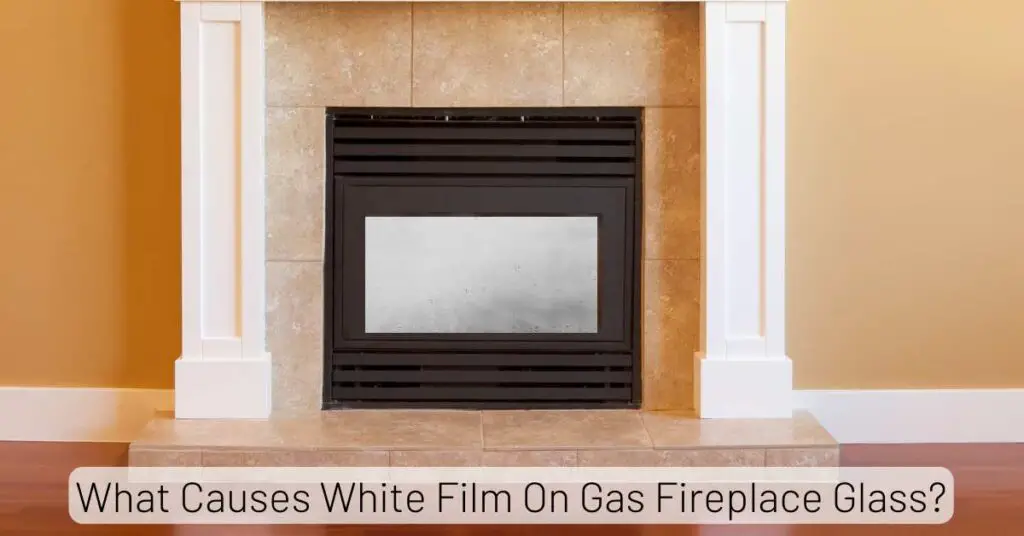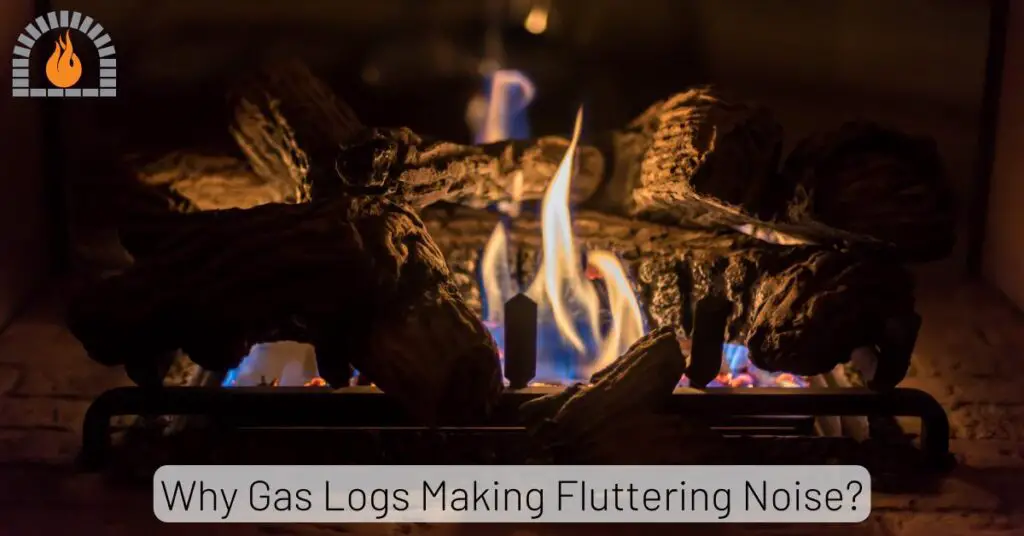In the realm of warmth and ambiance, gas fireplaces stand as modern marvels, seamlessly blending convenience with the timeless allure of a crackling fire. Yet, within the rhythmic dance of flames and the comforting hum of gas burners, an intriguing world of unexpected sounds exists.
From mysterious pops and creaks to gas fireplace sounds like wind, fluttering or the occasional hissing, whoosh, clicking, or snap, these unusual auditory experiences add an element of unpredictability to the tranquil setting.
Here, we explore the symphony of unusual sounds produced by gas fireplaces, including wind sounds, hissing, booms, whooshing, and chirping and more.
We delve into the origins of these noises emanating from gas fireplaces, unraveling the mysteries behind each unexpected note and discovering how these quirks contribute to the unique character of your home’s hearth.
Why Gas Fireplace Sounds Like Wind?
The most common reason for a wind-like sound in a gas fireplace is a pilot light issue. If the pilot light is not burning steadily, it can lead to a whooshing or windy sound.
Whistling or wind-like noises may also arise from a loose or damaged fuel line. If the tubing is not smooth internally, it can restrict gas flow, resulting in unusual sounds.
However, other reasons can also lead to wind-like sounds. If your gas fireplace is making a noise resembling wind, there could be several explanations for this. Here are some possible causes and potential fixes:
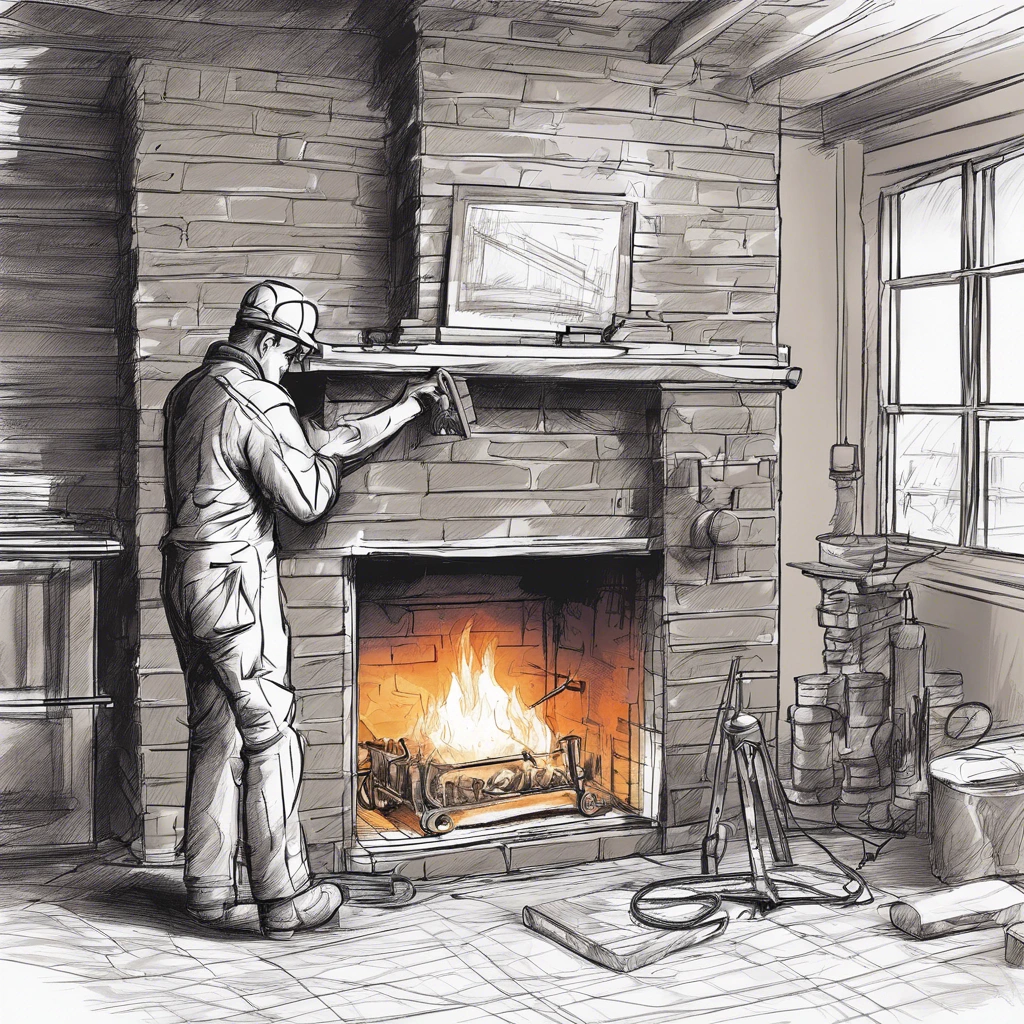
- Pilot Light Issues:
- Cause: If the pilot light is not burning steadily, it may cause a whooshing or windy sound.
- Fix: Ensure that the pilot light is burning consistently. If it’s flickering or weak, you may need to clean the pilot assembly or adjust the pilot flame according to the manufacturer’s instructions.
- Gas Pressure:
- Cause: Incorrect gas pressure can lead to turbulence, resulting in a sound similar to wind.
- Fix: Contact a professional technician to check and adjust the gas pressure. This should be done by a qualified gas technician to ensure safety.
- Venting Issues:
- Cause: Improper venting can cause the gas to flow unevenly, creating a windy noise.
- Fix: Make sure the venting system is properly installed and free from any obstructions. Check for blockages, debris, or venting issues and clear them as needed.
- Wind Drafts:
- Cause: If the fireplace is located in an area prone to drafts, external wind may be causing the noise.
- Fix: Consider installing a draft hood or wind guard to minimize the impact of external drafts. Weatherstripping around windows and doors can also help reduce drafts.
- Dirty Burners or Logs:
- Cause: Accumulated dirt or debris on the burners or logs can disrupt the smooth flow of gas, leading to noise.
- Fix: Clean the burners and logs according to the manufacturer’s instructions. Ensure that there is no dust, dirt, or other contaminants affecting the combustion process.
- Air-Fuel Mixture Issues
- Cause: In propane fireplaces, if there is a restriction in the mixing tube, it can create turbulence that causes the flame to behave erratically, resulting in loud “wind” noises. This can happen if there are blockages from debris or insects.
- Fix: Ensuring the mixing tube is clear can help eliminate these sounds
- Thermocouple Issues:
- Possible Cause: A malfunctioning thermocouple might cause the gas flow to be inconsistent, resulting in unusual sounds.
- Fix: Check the thermocouple for proper functioning. If it’s faulty, it may need to be replaced by a professional.
Why Gas Fireplace Making Fluttering Noise?
When the pilot light of the gas fireplace is not burning at the proper height, it can cause the gas to flow improperly and create a fluttering noise. Another reason for a gas fireplace making a fluttering noise could be improper log placement, a defective burner, or incorrect air shutter adjustment.
However, there are other reasons that can also cause your fireplace to flutter. Here are some common causes:
- If the pilot light is not burning steadily, it can cause fluttering noises.
- Dust, debris, or spider webs on the burners or logs can disrupt the smooth flow of gas and air, causing fluttering sounds.
- Poor airflow can lead to combustion issues and strange noises.
- If the gas pressure is too low or too high, it can affect the combustion process and result in whooshing or flittering sound.
- A malfunctioning thermocouple may cause the gas flow to fluctuate, leading to fluttering noises.
- The regulator controls the gas pressure entering the fireplace. If it’s not functioning correctly, it can lead to erratic flames and unusual noise.
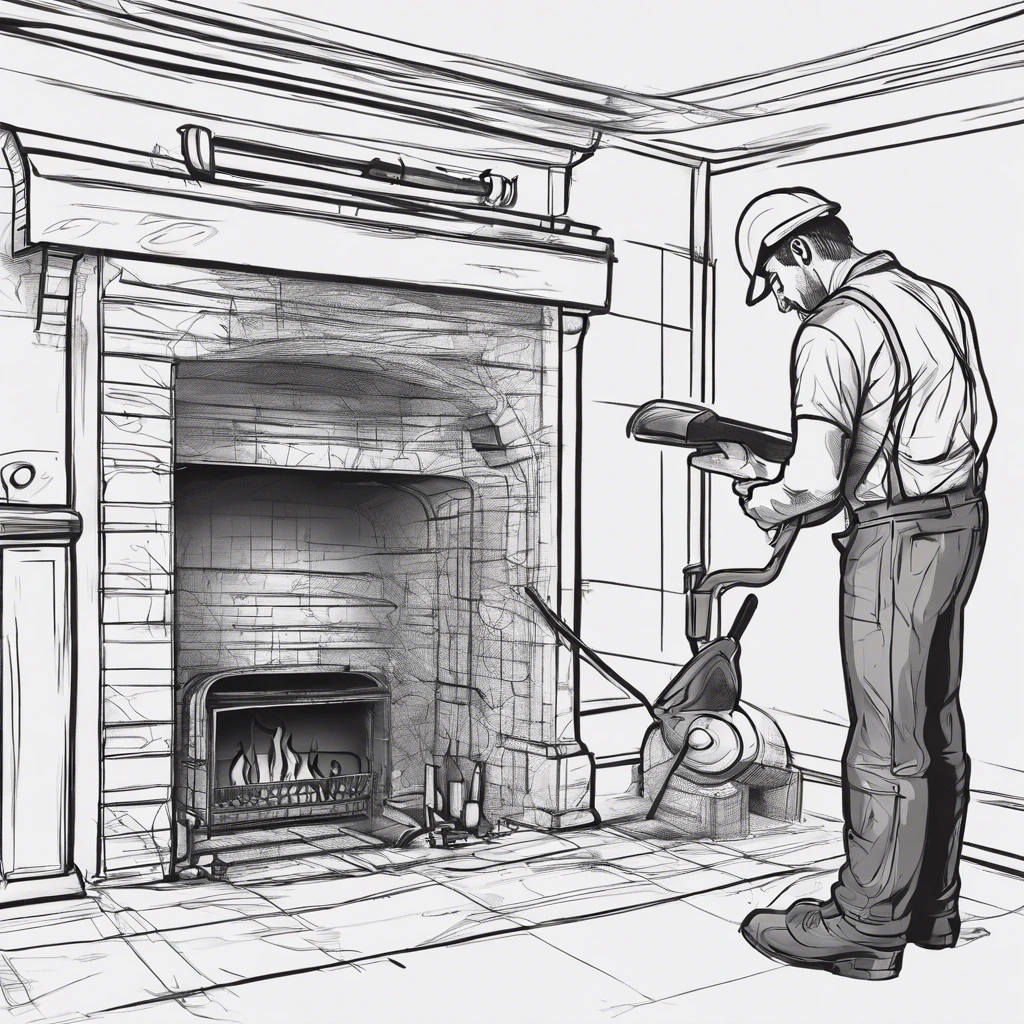
What Cause Gas Fireplace Clicking Sound?
The primary cause of the clicking sound in a gas fireplace is the expansion and contraction of metal components. The heating and cooling process can lead to the expansion and contraction of these components, ultimately producing clicking noises.
Gas fireplace clicking can be attributed to various factors, and addressing the issue often involves identifying the specific cause. Here are potential reasons and their corresponding fixes for a clicking sound:
- Thermocouple Issues:
- Cause: A malfunctioning or misaligned thermocouple might cause intermittent clicking sounds.
- Fix: Inspect the thermocouple for proper alignment and functionality. If it’s damaged or not working correctly, consider replacing it.
- Expansion and Contraction:
- Cause: Heating and cooling can cause metal components to expand and contract, resulting in clicking noises.
- Fix: Ensure that all components are securely fastened. You may need to tighten screws or bolts in areas where expansion and contraction are causing the clicking.
- Ignition System Problems:
- Cause: Clicking may occur if there are issues with the ignition system, such as a faulty igniter.
- Fix: Check the ignition system for any visible issues. If the igniter is damaged or worn out, replace it. Ensure that no obstructions are preventing proper ignition.
- Debris in Burner or Ignition Area:
- Cause: Accumulated dirt, dust, or debris in the burner or ignition area can lead to popping and clicking sounds.
- Fix: Clean the burner and ignition components thoroughly. Remove any debris that may be interfering with the proper functioning of these parts.
- Gas Valve Issues:
- Cause: A malfunctioning gas valve can cause irregular gas flow, leading to clicking noises.
- Fix: Have a professional technician inspect the gas valve for proper operation. If necessary, replace a faulty gas valve to ensure a consistent and controlled gas flow.
Why Gas Fireplace Making Hissing Sound?
The primary reason for a hissing sound in a gas fireplace is an issue with the gas pressure. Inconsistent or high gas pressure can result in a hissing sound as the gas flows through the system.
Gas fireplace hissing can indicate various issues, and resolving it often requires identifying the specific cause. Here are potential reasons and their corresponding fixes for a hissing sound:
- Gas Pressure Issues:
- Cause: Inconsistent or high gas pressure can lead to a hissing sound as the gas flows through the system.
- Fix: Contact a technician to check and adjust the gas pressure to the manufacturer’s specifications. This is crucial for both safety and optimal fireplace performance.
- Pilot Light Issues:
- Cause: A hissing sound may occur if the pilot light is not burning steadily or there’s an issue with the pilot assembly.
- Fix: Ensure that the pilot light is burning steadily. Clean the pilot assembly and adjust the flame per the manufacturer’s instructions. If necessary, replace a faulty pilot assembly.
- Leaking Gas:
- Cause: A gas fireplace hissing sound when on could be signal a gas leak, a serious safety concern.
- Fix: If you suspect a gas leak, immediately turn off the gas supply to the fireplace and contact a professional technician or the gas company. Gas leaks require immediate attention for safety reasons.
- Valve Issues:
- Cause: Malfunctioning or loose gas valves can lead to gas escaping and causing a hissing noise.
- Fix: Have a professional technician inspect the gas valve for proper operation. Tighten loose valves and replace faulty ones to ensure a secure gas flow.
- Burner Obstructions:
- Cause: Debris or blockages in the burner or gas line can disrupt the flow, causing a hissing sound.
- Fix: Clean the burner and gas lines thoroughly to remove any obstructions. Ensure that no debris or foreign materials are affecting the proper functioning of these components.
- Faulty Seals or Gaskets:
- Cause: Worn-out or damaged seals and gaskets can allow gas to escape, leading to a hissing sound.
- Fix: Inspect seals and gaskets for any signs of wear or damage. Replace any components that are not forming a proper seal.
- Regulator Issues:
- Cause: A malfunctioning gas regulator can cause irregular gas flow and hissing sound.
- Fix: Have a professional technician check and, if necessary, replace the gas regulator to ensure consistent and controlled gas pressure.
Reason and Fixes of Gas Fireplace Boom Sound
The primary cause of a booming sound in gas fireplace is delayed ignition. This occurs when gas is released but does not ignite immediately, allowing it to accumulate. When the gas finally ignites, it can create a small explosion, resulting in a loud boom noise.
This issue can stem from several factors, such as:
- If the burners are obstructed, they may not ignite the gas promptly.
- An incorrect ratio of gas to air can hinder ignition.
- A weak or dirty pilot light may fail to ignite the gas quickly enough
Here are possible reasons and their corresponding fixes for a boom sound:
- Delayed Ignition:
- Possible Cause: Delayed ignition occurs when gas builds up before igniting, leading to a sudden explosion and your gas fireplace starts with a boom.
- Fix: Ensure that the ignition system is functioning correctly. Clean the burners and ensure they are free from debris. If the ignition is consistently delayed, seek the assistance of a professional technician to inspect and repair the ignition system.
- Dirty Burners or Logs:
- Cause: Accumulated dirt, dust, or debris on the burners or logs can disrupt the combustion process, leading to a booming sound.
- Fix: Clean the burners and logs according to the manufacturer’s instructions. Remove any debris that may be hindering the proper flow of gas.
- Incorrect Air-to-Fuel Mixture:
- Cause: An improper air-to-fuel ratio can lead to incomplete combustion, resulting in a booming sound.
- Fix: Adjust the air-to-fuel mixture according to the manufacturer’s specifications. This may involve adjusting the air shutter or other components to achieve the correct balance.
- Gas Pressure Issues:
- Cause: Incorrect gas pressure can cause uneven combustion, leading to a booming sound.
- Fix: Contact a technician to check and adjust the gas pressure to the manufacturer’s specifications. This is crucial for both safety and optimal fireplace performance.
- Venting Problems:
- Cause: Issues with the venting system, such as blockages or restrictions, can result in a booming noise.
- Fix: Inspect the venting system for any obstructions or restrictions. Clear away any debris or blockages, and ensure the venting is installed correctly and free from issues.
- Gas Leak:
- Cause: A gas leak can lead to an explosive sound. This is a serious safety concern.
- Fix: If you suspect a gas leak, immediately turn off the gas supply, evacuate the area, and contact the gas company and a professional technician. Gas leaks require immediate attention for safety reasons.
- Faulty Ignition System:
- Cause: A malfunctioning ignition system can result in delayed ignition or inconsistent combustion, leading to a booming sound.
- Fix: Have a professional technician inspect the ignition system for any faults. Replace or repair any components that may be causing issues.
- Incorrectly Sized Burner or Logs:
- Cause: If the burner or logs are not correctly sized for the fireplace, it can disrupt combustion and cause a booming sound.
- Fix: Ensure the burner and logs are correctly sized and installed according to the manufacturer’s guidelines.
Reason and Fixes of Gas Fireplace Whooshing Sound
Pilot light issues in a gas fireplace can result in a whooshing sound. If the pilot light is not burning steadily, it may cause a whooshing or windy sound.
Various factors can cause a whooshing sound in a gas fireplace, and addressing the issue often involves identifying the specific cause.
Here are potential reasons and corresponding fixes for a whooshing sound:
- Pilot Light Issues:
- Cause: If the pilot light is not burning steadily, it may cause a whooshing or windy sound.
- Fix: Ensure that the pilot light is burning consistently. Clean the pilot assembly and adjust the flame according to the manufacturer’s instructions.
- Incorrect Air-to-Fuel Mixture:
- Cause: An improper air-to-fuel ratio can lead to incomplete combustion, resulting in a whooshing sound.
- Fix: Adjust the air-to-fuel mixture according to the manufacturer’s specifications. This may involve adjusting the air shutter or other components to achieve the correct balance.
- Venting Problems:
- Cause: Issues with the venting system, such as blockages or restrictions, can result in a whooshing noise.
- Fix: Inspect the venting system for any obstructions or restrictions. Clear away any debris or blockages, and ensure the venting is installed correctly and free from issues.
- Dirty Burners or Logs:
- Cause: Accumulated dirt, dust, or debris on the burners or logs can disrupt the combustion process, leading to a whooshing sound.
- Fix: Clean the burners and logs according to the manufacturer’s instructions. Remove any debris that may be hindering the proper flow of gas.
- Wind Drafts:
- Cause: If the fireplace is in an area prone to drafts, external wind may be causing the whooshing noise.
- Fix: Install a draft hood or wind guard to minimize the impact of external drafts. Weatherstripping around windows and doors can also help reduce drafts.
- Burner Design:
- Cause: Some gas fireplace models may have a design that inherently causes a whooshing sound.
- Fix: In such cases, the noise might be a fireplace characteristic. Contact the manufacturer or a professional technician to inquire if any modifications can be made.
Reason and Fixes of Gas Fireplace Chirping Sound
Misaligned thermocouples and loose logs, grates, or other components can create chirping sounds in a gas fireplace.
Various factors can cause a chirping sound in a gas fireplace, and addressing the issue requires identifying the specific cause.
Here are potential reasons and corresponding fixes for a chirping sound:
- Thermocouple Issues:
- Cause: A malfunctioning or misaligned thermocouple might cause intermittent chirping sounds.
- Fix: Inspect the thermocouple for proper alignment and functionality. If it’s damaged or not working correctly, consider replacing it.
- Expansion and Contraction:
- Cause: As metal components heat up and cool down, they can expand and contract, resulting in chirping noises.
- Fix: Ensure that all components are securely fastened. If the chirping is due to expansion and contraction, tightening screws or bolts in affected areas may help.
- Loose or Misaligned Components:
- Possible Cause: Loose logs, grates, or other components can create chirping sounds as they shift during operation.
- Fix: Inspect all components to ensure they are securely in place. Tighten any loose parts and realign logs or grates as needed.
- Ignition System Problems:
- Cause: An ignition system issue, such as a faulty igniter, can lead to chirping sounds.
- Fix: Check the ignition system for any visible issues. If the igniter is damaged or worn out, replace it. Ensure that no obstructions are preventing proper ignition.
- Debris in Burner or Ignition Area:
- Cause: Accumulated dirt, dust, or debris in the burner or ignition area can lead to chirping sounds.
- Fix: Clean the burner and ignition components thoroughly. Remove any debris that may be interfering with the proper functioning of these parts.
- Incorrect Air-to-Fuel Mixture:
- Cause: An improper air-to-fuel ratio can lead to incomplete combustion, resulting in chirping sounds.
- Fix: Adjust the air-to-fuel mixture according to the manufacturer’s specifications. This may involve adjusting the air shutter or other components to achieve the correct balance.
- Venting Issues:
- Cause: Problems with the venting system, such as blockages or restrictions, can result in chirping noises.
- Fix: Inspect the venting system for any obstructions or restrictions. Clear away any debris or blockages and ensure the venting is installed correctly and free from issues.
Why Is My Fireplace Making Noise When Off?
After the fireplace has been used, the metal components can become heated. When the fireplace is turned off, these components cool down, and the metal may contract, causing clicking or popping sounds. This is often called “thermal expansion” or “metal contraction” noises.
Over time, creosote can accumulate in the chimney. When the fireplace is not in use, the temperature inside the chimney drops, and you may hear cracking or popping sounds as the creosote contracts and solidifies.
If your chimney has draft problems, such as air moving down it, it can create unusual sounds. This could be due to negative air pressure in the house or external factors affecting the draft.
Animals or debris may have found their way into the chimney, and the sounds you hear could be from their movements. Animals like birds or rodents may build nests or get stuck in the chimney.
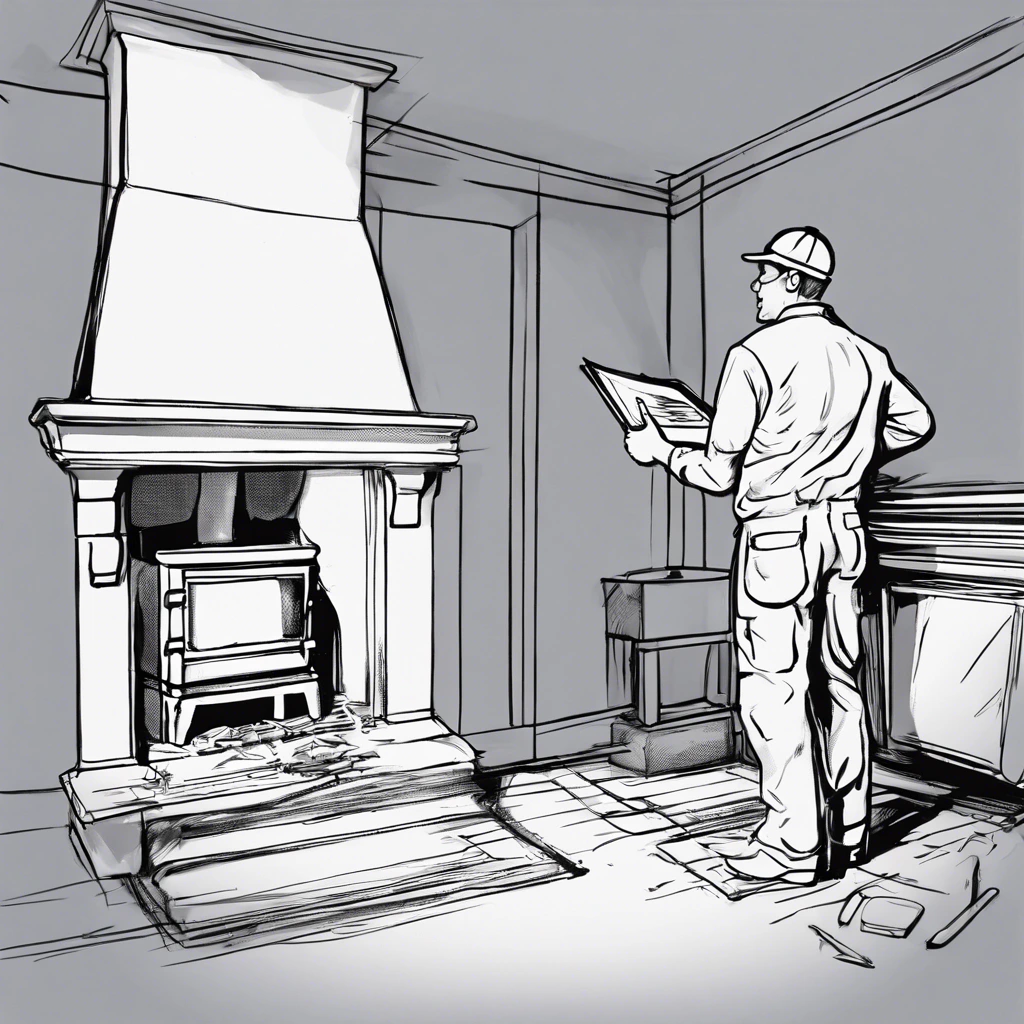
Affiliate Disclosure: Fireplaceadviser.com is a participant in the Amazon Services LLC Associates Program. We may earn a commission when you click on certain links on this site and purchase.

Hello!! I am Jamal Khan. I often fix my home electric heaters and gas stove problems and research the common issues in the heating units to improve my knowledge and expertise. The aim of establishing fireplaceadviser.com is to share my expertise and knowledge with my audience.







